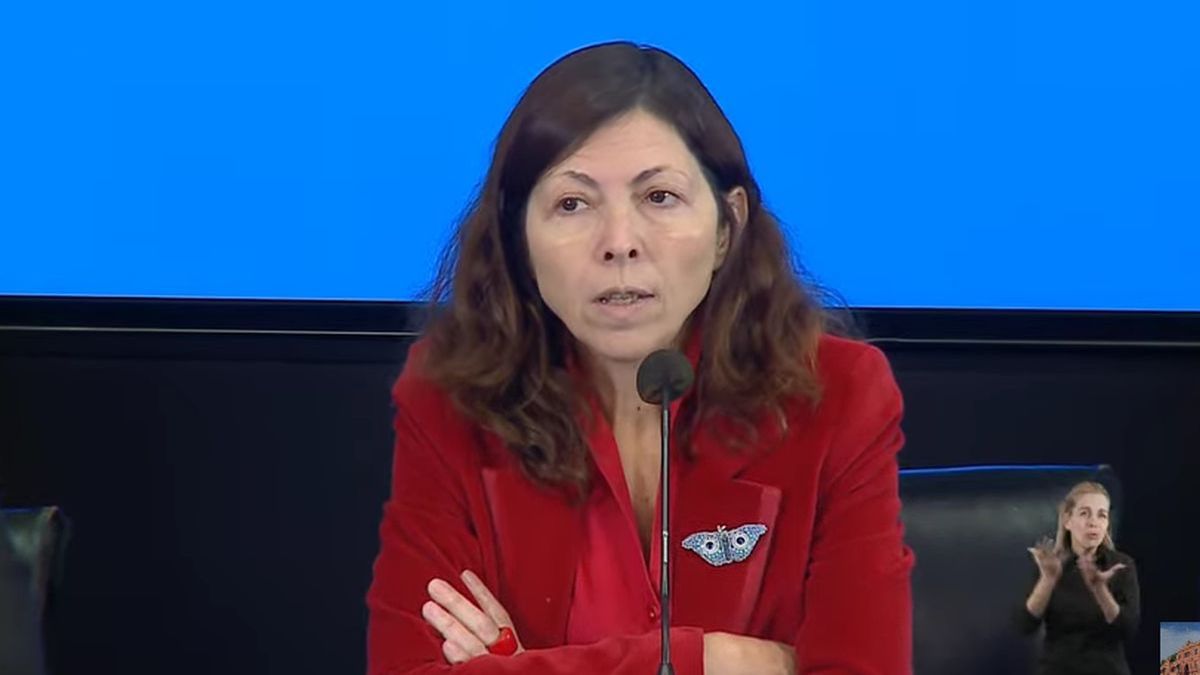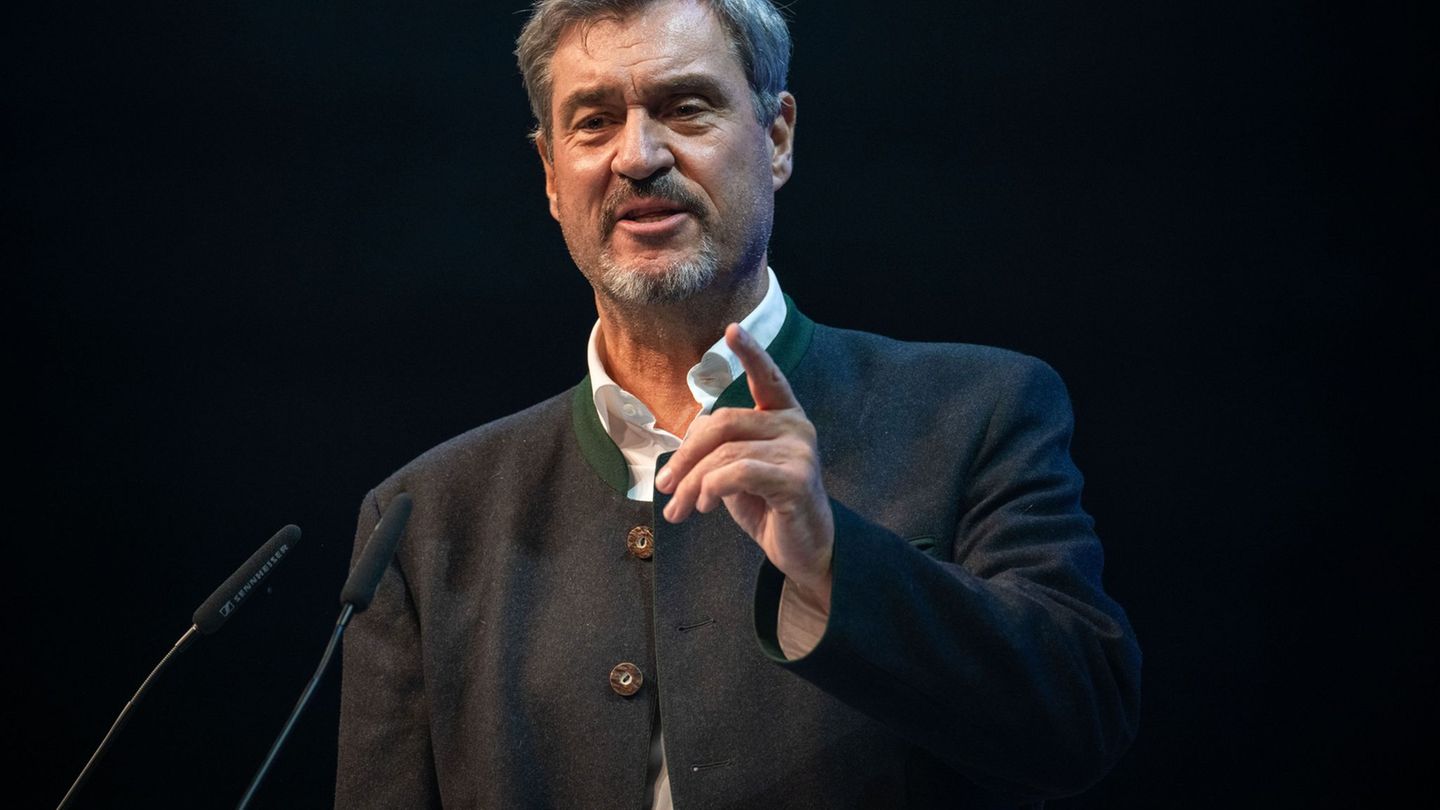batakis participated virtually in a meeting organized by the Secretary of Energy, Dario Martinez, in the city of Neuquen.
In this framework, they analyzed the investment plans of the company Valley Pipelines (Oldelval), which carries crude oil from Vaca Muerta to Puerto Rosales, near Bahía Blanca; those of the company Oiltanking, which is in charge of storing this crude oil and dispatching it for export and distribution in the domestic market; and the signature Transandean Pipeline (Otasa), in charge of the recovery of the operability of the pipeline that links with Chile.
What did Batakis say?
Amid the presentations made by the concessionaire companies, Minister Batakis joined the meeting by videoconference.
The head of the Palacio de Hacienda assured that “Everything that has to do with pipeline and gas pipeline investments is a priority for our government.”
“We can have different financial situations that slow down some of the decisions but in no way stop them because we need to take the energy everywhere“, said Batakis after urging companies to continue “betting on Argentina” to address the need to put the country “on the path of sustainability, that all provinces grow in the complexity of their productive matrix.”
The meeting was attended by the directors of a dozen oil companies headed by the president of YPF, Pablo González, and the CEO of Tecpetrol, Ricardo Markus, in addition to representatives of Pan American Energy, Pluspetrol, Shell, CGC, Pampa Energia, Capex, Vista, Chevron, Exxon Y petronas, and of the business chambers of the sector and trade union representatives.
On the side of the provinces through which the pipeline routes cross were the Minister of Energy of Neuquén, Alejandro Monteiro; the Secretary of Energy of Río Negro, Andrea Confini; the Undersecretary of Energy of Buenos Aires, Gastón Ghioni, and the Undersecretary of Hydrocarbons of La Pampa, Cecilia Gordino; in addition to the Undersecretary of Hydrocarbons of the Nation, Maggie Videla.
Martínez said that the intention of the national government is to be able to define the requests for the extension of concessions for August in the case of Oldelval and Oiltanking, and in September in the case of Otasa.
“The objective is not only to seek self-sufficiency but also to generate exportable balances to obtain the foreign exchange that Argentina so badly needs, for which it is necessary to continue this path of production growth that is going through historical records in gas and oil,” said the secretary , noting that a similar requirement is noted in electric transport in the event of peaks in demand.
US$1 billion investment plan for oil companies
During the presentations, the companies informed that they have in design plans for more than US$1,000 million in the medium termwhich will allow them to respond to the increased demand from oil companies for greater transportation capacity, for which they have already administratively submitted the request for a ten-year extension of their concessions that expire in 2028.
In the case of otasa, its president, César Grzona, explained that the company is working on the rehabilitation of the oil pipeline that starts near the city of Añelo, in Vaca Muerta, and crosses the Cordillera to the Bio Bio refinery on the Pacific coast, through a pipeline of 427 kilometers that reaches a height of 2,000 meters.
The pipeline has not been in operation since 2006, which is why a detailed analysis of the pipes and surrounding works is being carried out in order to be operational in December with a minimum transport flow of 8,000 cubic meters of oil per day (m3d), with a capacity total of 17,500 m3d, which would allow an export outlet for Neuquén crude to the west.
The works that were presented in three consecutive stages are demanding an investment of US$64 million carried out by the controlling companies of the company, which are YPF and the Chilean Enap.
On the other hand, the general manager of Oldelval, Ricardo Hösel, gave the details of the investment plans in two successive stages that will allow doubling the transportation capacity from Puesto Hernández in Neuquén to Puerto Rosales in Bahía Blanca, with which they seek to increase the transported volume of crude oil to 72,000 cubic meters per day. .
Oldelval pointed out that in June there was an increase in transportation of 25% compared to December, which was possible due to an investment already made in April whose higher flow was already absorbed by the growing production.
The first stage of works will require an investment of US$750 million, and it is projected that at the end of the possible extension of the concession in 2037, the figure would rise to US$1.65 billion for the permanent renovation of the system.
Finally, the general manager of Oiltanking, Rolando Balsamello, a company in charge of storing crude oil in the Bahian port complex for export by sea, gave details of the investment plans for some US$300 million for the construction of new tanks and a new dock, which will have a 95% impact on purchases of local goods.
Source: Ambito
David William is a talented author who has made a name for himself in the world of writing. He is a professional author who writes on a wide range of topics, from general interest to opinion news. David is currently working as a writer at 24 hours worlds where he brings his unique perspective and in-depth research to his articles, making them both informative and engaging.




